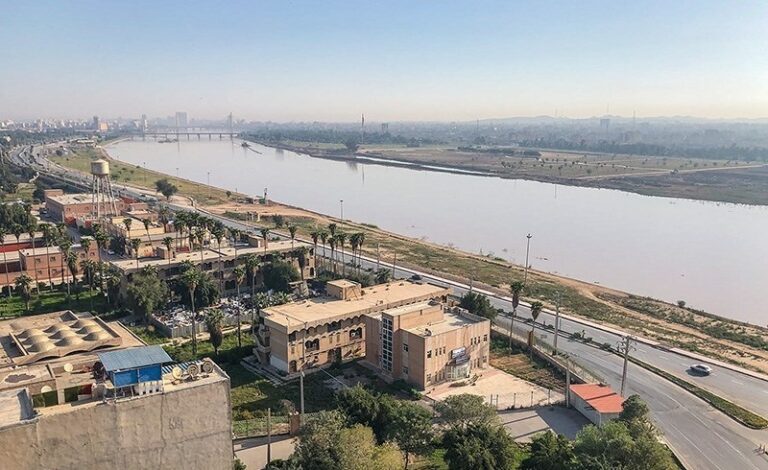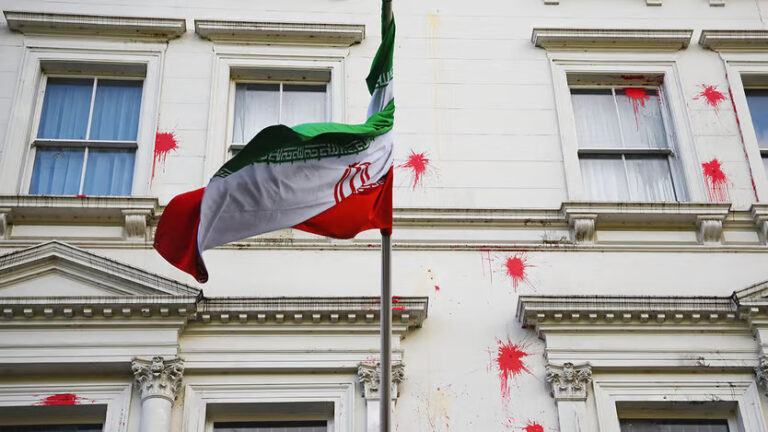Beirut, March 25 (AKnews) – NATO Watch director, Ian Davis, spoke inclusively to AKnews Correspondent Khalil Harb who asked questions over a number of critical issues. Below is the content of the interview.
Khalil Harb: What is your comment, on what the Sunday Herald published about shipping “Hundreds of powerful US bunker-buster bombs, from California to the British island of Diego Garcia”?
Ian Davis: At the time I was asked for a quote for that story, I was very cautious about reading too much into one piece of evidence. I am now even more cautious about reading too much into it. There is no evidence of political intent, i.e. the US President remains a long way off from authorising an attack on Iran.
In other words, the deployment to Diego Garcia is more likely to be a standard procedure to increase capability – the US military (and it’s not alone here) is obsessed with having all options for the President in the situation room when the time comes.
There has also been a relatively consistent message from the Pentagon that any attack on Iran would be destabilizing and costly to other efforts in the region. That coupled with Petraeus’ comment about the timeline having “slid to the right” for a possible Iranian nuclear weapon puts this alleged arms delivery to Diego Garcia far more in the context of ‘just in case’ planning that has always been part of the backdrop than telegraphing the next move. Others I have spoken to also thought that the US might be re-stocking for Afghanistan and that the quantities and payloads were relatively insignificant – the expectation would be for 32,000 lb bunker busters if they were going to attack Natanz. Smaller bunker busters (of the type apparently delivered to Diego Garcia) were used in Afghanistan in 2001 but are hardly part of the current ‘hearts and minds’ counter-insurgency strategy. However, the US have stepped up attacks in the Afghan mountains again, and may be using just these kinds of munitions to stabilize supply routes and destabilize the Taliban.
KH: Do you think it has reached the point of no return, and war is inevitable?
ID:No, we are nowhere near such a point, and war is never inevitable. Negotiations are on the brink of failure for a complicated mixture of reasons. Timothy Garton Ash writing in today’s Guardian has it about right when he says: “The Obama administration probably focused too exclusively on the offer of nuclear negotiations, while a huge opportunity for political change was opening up and then partly closing down inside Iran. Having been snubbed by Tehran on the nuclear front, Washington is now investing too much political capital in the pursuit of sanctions that are unlikely to bring the current Iranian regime to a negotiated renunciation of its nuclear programme, even if China and Russia were to agree to those sanctions.
But if you ask why Iran spurned Obama’s outstretched hand, then you have to look at the legacy of the Bush years, including the way in which the Iraq war strengthened Iran’s position in the region.
If you ask why China is so hard to get, then you have to recall the underlying power shifts, as well as a growing Chinese economy’s thirst for Iranian oil. If you ask why the Obama administration is playing it this way, then you have to look also at the pressures from Congress, and the fear that Israel might take unilateral military action against Iranian nuclear facilities”.
So my bottom line is that there is still room for a diplomatic solution, but there are no easy options and it needs a change of mindset in both Washington and Tehran. In particular, Washington needs to eliminate the threatening language and create stronger incentives for cooperation. It also needs to look beyond the idea that, “if sanctions are not effective, we take military action”.
KH: Many analysts have spoken about the difficulty of stopping the Iranian programme through military means. What’s your comment over that issue?
ID: I agree that there is no military solution. Not only would military action fail to eliminate Iran’s nuclear programme, but its mere mention lacks credibility. First, an attack would at best only temporarily stop the Iranian nuclear programme from proceeding, and would probably lead to a covert acceleration of it; Iran would almost certainly withdraw from the non-proliferation treaty and cancel all IAEA inspections. Second, Iran has the asymmetric capacity to retaliate against US and Western operations in Iraq, Afghanistan, and elsewhere. Third, the US lacks the capacity to sustain a third front in the Middle East. Fourth, the regional repercussions are unpredictable, but hardly likely to be conducive to peace in the Middle East. Fifth, a military campaign against Iran would probably be the death knell of a pro-democracy movement in the country. In sum, the consequences to US (and global security) interests argue strongly against the military option.
Kh/gs AKnews









+ There are no comments
Add yours